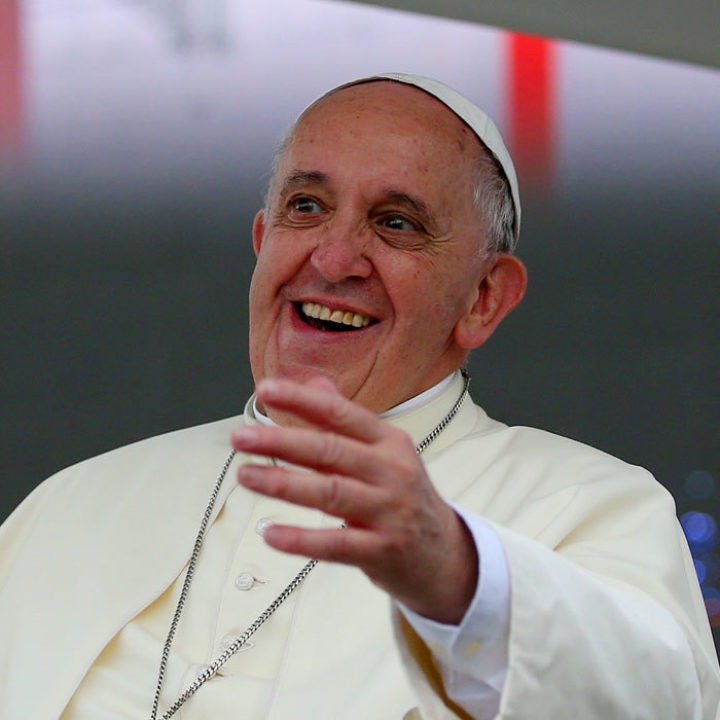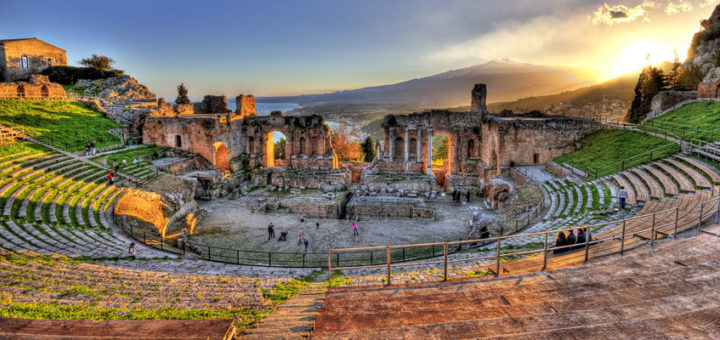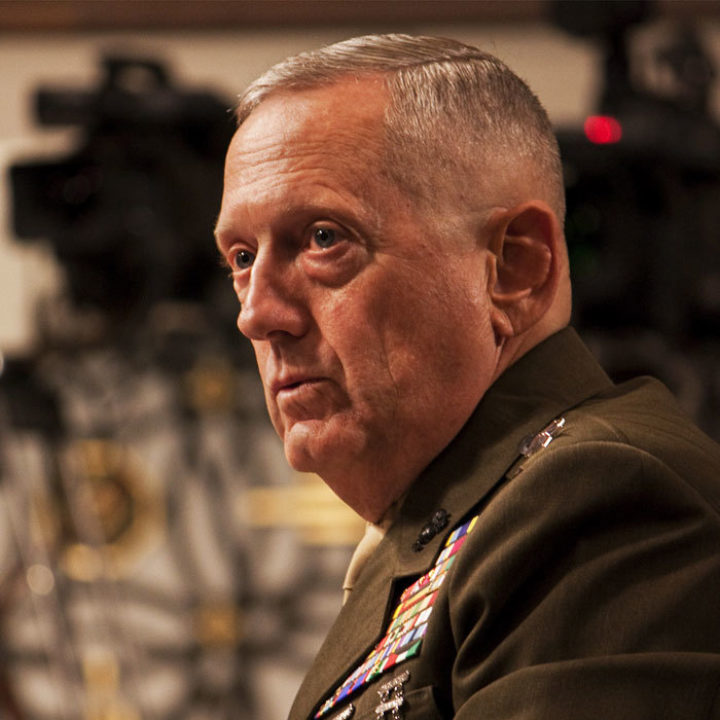Trump and Paris: All about the people
President's unprecedented immersion in the world outside Trumpsville could set tone on climate change
By Richard Black
Share
Last updated:
We've now been waiting nearly as long for President Donald Trump’s decision on the Paris climate agreement as for Liverpool’s first Premier League title or the sixth Game of Thrones novel.

And despite rumours of a resolution, we still have no firm clue as to when a decision might come, or what it might be.
This week is likely to prove pivotal; but not for the reasons you might think.
The backdrop is President Trump’s first big trip away from American shores. Saudi Arabia’s been and gone, the Pope has been visited, and now he drops in on the NATO Summit before tipping up, finally, at the G7 Summit in the ancient Sicilian town of Taormina.
That’s a lot of nights with head on a non-American pillow. And, if the various hosts are successful in their aims, a lot of nights’ dreams filled with climate change.
Bringing to book
At the Vatican on Wednesday, the Pope gave Mr Trump his mostly self-penned Encyclical Laudato Si, which contains as cogently argued a case as you will find for taking climate change and other global environmental issues seriously. It may well be the first book on climate change ever to touch the great deal-maker’s hands – and he’s promised to read it.
Inside the NATO summit, several countries are putting forward the argument that climate change, unconstrained, spells increasing pressure on food and water in regions such as the Sahel where many already live on the tipping point between sufficiency and famine – thus, unconstrained climate change will mean an increasing need for security forces, at increasing cost.
If this doesn’t immediately resonate with Mr Trump, it will with his Defence Secretary, James ‘Mad Dog’ Mattis – the best-qualified member of the Administration, known both to accept the scientific evidence on climate change and believe firmly in international collaboration with allies.

Finally, when Mr Trump arrives at the G7 summit, he’ll find a phalanx of world leaders lining up behind a draft declaration that will in some form of words back action on climate change.
Germany has been especially vocal, sending a letter to the White House warning that it risks ‘lasting damage’ to US-European relations by going wobbly on climate change. French President Emmanuel Macron – even newer to office than Mr Trump, and significantly more popular – has many reasons for pressing the Paris button, not least national pride.
G7 host Italy has put climate change front and centre of its priority list for the summit – and, coming immediately after the NATO gathering with its climate security messages, that priority list neatly juxtaposes climate change and global development with ‘citizen safety’, including a focus on the Sahel and ‘prevention of terrorism’.

Meanwhile, American diplomats have been having a busy old time in other fora. At the Arctic Council summit last week, the US signed off on a declaration that included ‘re-iterating the need for global action to reduce both long-lived greenhouse gases and short-lived climate pollutants’.
And in Bonn, a fairly nerdy round of UN climate negotiations passed off smoothly, with observers suggesting it had made decent progress. There was no sign of disruption from the US delegation, China and Germany argued most vociferously that Mr Trump’s interest lies in remaining at the table, and research showed that China and India, the US’s main economic rivals for future decades, are both over-achieving on their carbon-cutting plans.
Mr Trump wasn’t at the Belt and Road Forum Leaders’ Roundtable in Beijing last week, but a lot of other leaders were – including Italian Prime Minister and G7 host Paolo Gentiloni. There, leaders agreed a joint communique fulsome in its regard for international cooperation, including the somewhat barbed wording ‘encouraging all parties which have ratified it to fully implement the Paris Agreement’.
Adding to the international voices urging Mr Trump to remain inside the Paris Agreement are a number of powerful American businesses, including some on whose behalf the President is apparently intending to pull out. Oil companies? Check – with US giants including Exxon Mobil and Chevron telling the Administration they want to remain. Coal companies? Ditto.
Although energy companies are the most obviously interested, totemic American brands such as Coca-Cola have also been into the White House to press the pro-Paris case.
So who is for Parexit?
Against all this, it’s interesting to cast an eye at who’s arguing for the US to pull out of the Paris Agreement, and on what grounds. I would dare anyone to read the ‘Top Five Reasons the US Must Cancel the Paris Climate Treaty’ from the Competitive Enterprise Institute, the DC-based lobby group, and not find yourself asking: is that it? Does the entire anti-Paris case rest on arguments this flawed?

A lot has been written about Donald Trump’s inconsistency. But to my eyes, in one regard he’s been absolutely consistent: he bases a lot of his positions on how he likes and rates people he meets personally. The story of how ‘Mad Dog’ changed the President’s mind on torture, which I’ve had confirmed privately, is a case in point.
And this, it seems to me, is why the President’s trip is likely to determine his eventual decision on the Paris Agreement.
He’s never met anyone with the moral authority of the Pope before. He’s going to have lengthy discussions with a leader of real substance in Angela Merkel and a dynamic new kid on the block in Emmanuel Macron.
He’ll have Generals with medals and battle-scars warning that climate impacts will create more instability and risk more conflict and more migration.
At the G7 he’ll have his first hand-shakes with leaders of African developing countries – President Uhuru Kenyatta of Kenya, Nigerla’s President (and former army general) Muhammadu Buhari, President Beji Caid Essebsi of Tunisia and Ethiopia’s Prime Minister Hailemariam Desalegn.
The vibe will be very different from that of the Oval Office or its extension at Mar-a-Largo. These individuals speak of climate change being a threat to their peoples with far more authority than the Competitive Enterprise Institute has when it claims the Paris Agreement will ruin African nations’ economies – given that they actually run African economies.
It’s certain that Donald Trump has never before had such an extended and pluralistic dip in a markedly non-American pool, with such a rich cast of characters. It’ll be intriguing to see how he emerges, and how he views the Paris Agreement at the end of it.
Share